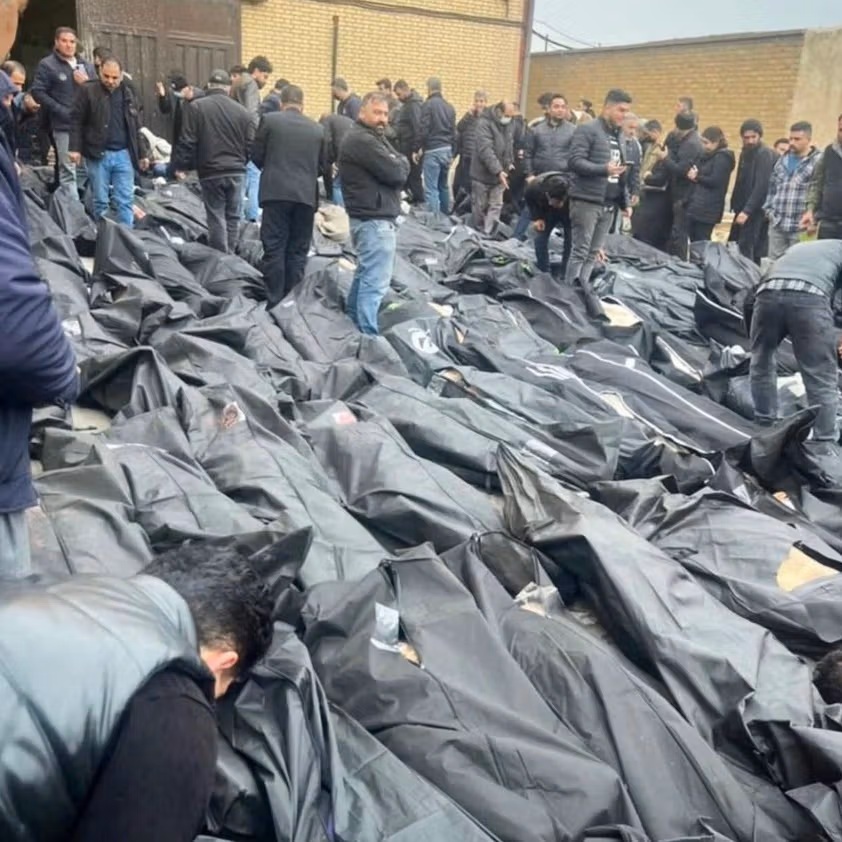
Via an Iranian author and friend, Zoha Kazemi, I was recommended to contact Shant Khodadadian (34), a young and up-and-coming Armenian-Iranian author. After reading stories like "Observer-Oriented Special Military Operations", I simply ‘had’ to pick the brains of this exciting author.
By Emad Aysha
Shant is an Armenian name meaning lightning. Khodadad is a Persian word meaning God, given with the typical Armenian “-ian” suffix. Khodadadian was born in Iran and started reading at a very young age.
“My first encounter with sci-fi in book format was “Twenty Thousand Leagues Under the Seas” by Jules Verne. I started writing when I was in elementary school. In high school, I wanted to write something for others. Until university (English literature), this started to get more serious.”

MIDNIGHT OIL: Shant, hard at work. charting the course of a world gone mad. [Provided by interviewee]
What kind of author are you? Horror, speculative fiction, a dystopian satirist or what?
“If I have to classify my work, I would say speculative fiction. I wouldn’t say I like restricting myself to one genre, so my works can be anything from sci-fi, fantasy, and horror to magical realism. All of them have some form of speculation, whether scientific or otherwise.
I believe it’s better to go with the idea and see what type of fiction I end up with. Almost half of my works are in some form of sci-fi because I am interested in science and the future. I try not to force the other ideas in some form of sci-fi needlessly.
One of the reasons I like to write short stories (at least for now) is the ability to work on entirely different things quickly. The last work I’ve finished is a magical realism novelette with many horror elements toward the end. Still, the current story is a lighthearted detective fantasy with much silliness involved. It serves as a pallet cleanser of some sort. If I were to work on novels, that time would be at least a year – on an optimistic take - instead of a few weeks”
Is there a diaspora of Armenian creatives in Iran, or is it Iranian artists and authors in Armenia and the rest of the world?
“There is a large diaspora of Armenians in Iran which goes back to the time of Nader Shah. We do have a strong artistic community, be it writers, filmmakers, musicians, etc. I’d say the numbers are more than usual. Maybe it’s because pursuing arts is instead a respectable thing to do among families, especially the older ones. Although the number of Armenians in Iran is getting smaller with each decade. Most are travelling to the USA, and some to Armenia.
The Iranian population in Armenia is much smaller, but recently, it’s been growing. I know of some Iranian musicians who live in Armenia but no writers. Iran writers in diaspora—the ones I know of—usually live in Europe.”
Who are the leading lights in Armenian literature, historically?
“Like any country, there are some “classics” such as Hovhannes Tumanyan, but I don’t know on what level they’re recognised internationally. Persian literature has more presence in global literature than Armenia. I think someone like William Saroyan is more recognisable because he wrote in English, and his books are adapted into Hollywood movies. But he’s to Armenian literature what Ishiguro is to Japanese. Most people would not consider him a proper Armenian writer.
From the Iranian diaspora who write in Persian, there is Zoya Pirzad, a famous writer in Iran. Her books are widely read, and she writes from the perspective of Armenian families who live in Iran.
Sadly, I don’t know of any Armenian writer who writes SF, which is disappointing since the USSR had a strong SF culture. But it seems that culture never set its roots in Armenia. Even on the translation front, the situation is quite abysmal. You can only count on super famous and old works to be found in the Armenian language. I mean things like Verne, Wells, or maybe some Asimov.
The younger generation might be more interested in SF because the bookshops have SF works in English. But there’s no community or such thing. Iran has a much stronger scene.”

TRAVEL LITERATURE: William Saroyan in Venice in 1949, a forerunner of things to come. [Foto-Getty]
Have you faced any problems getting published in English?
“Not an unusual one. Getting published is hard enough, but I didn’t feel I had any disadvantages as someone who did not speak English as my first language. In the beginning, I was anxious about the language. You’re not confident enough when writing in a second (in my case, third) language. But after one or two works get published, you feel better about it.
It pays very little as of now. I’m still at the beginning of my journey, and I don’t have the big-league publishers who pay well (Clarksworld, Apex, Asimov’s, Lightspeed, etc.) under my belt. Smaller publishers don’t have the budget to pay well, but it's encouraging to get paid, albeit small.”
Finally, how familiar are you with Arabic literature? Would you like to read Arab SF?
“I’m afraid to say none at all. I’ve only read one work of Mahfouz many years ago in Persian. I think the translation would be something like “Thief and Dogs”.
I only know of an ethnically Lebanese writer named Amal El-Mohtar. She was born and raised in Canada and writes in English. Nonetheless, her novella “This is How You Lose the Time War” is a very good book. I’d recommend it.”






